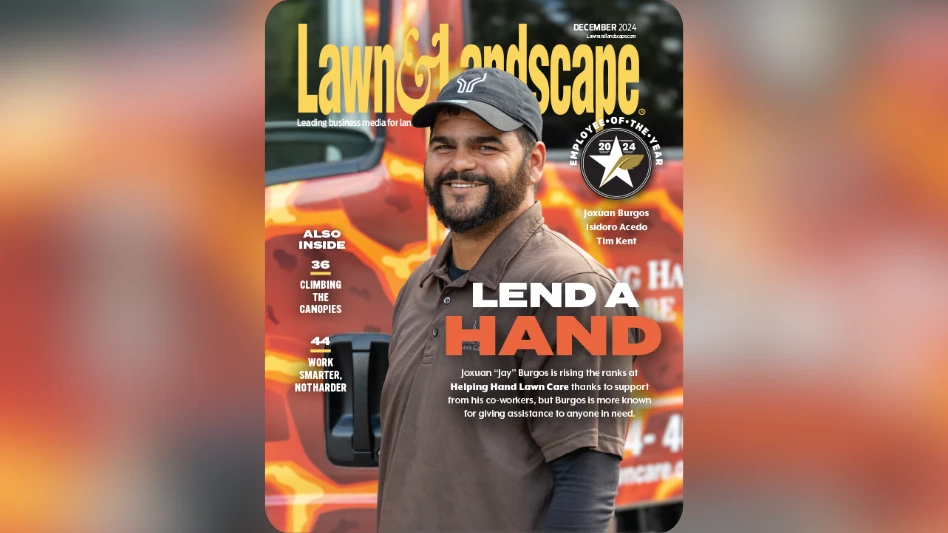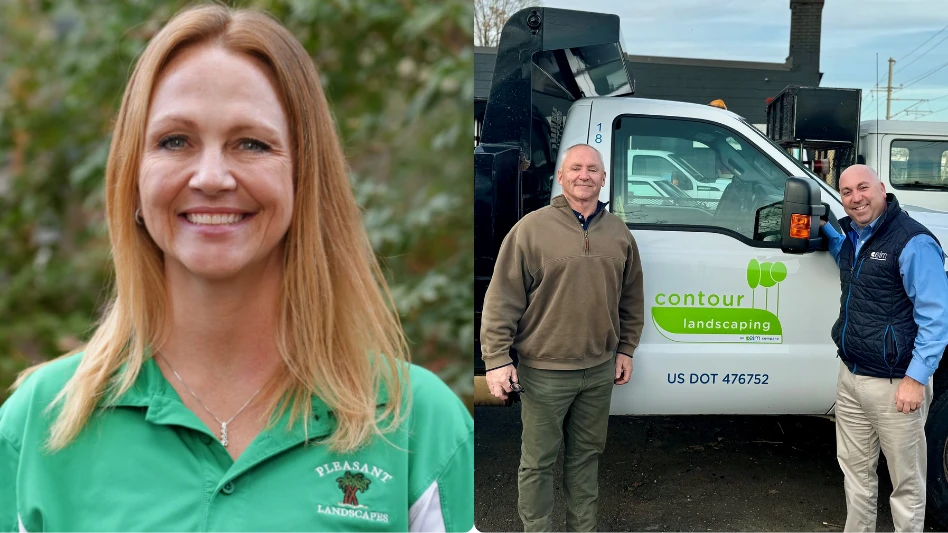 After four decades at the helm of Oak Creek-based KEI, Ron Kujawa knew it was time to step aside.
After four decades at the helm of Oak Creek-based KEI, Ron Kujawa knew it was time to step aside.
But the consummate businessman found it difficult. Who would take over? Would they run things the right way?
Kujawa’s family has been in business for a long time – they started with a feed and seed store in the 1920s, then moved into beer distribution and, in 1968, landscaping.
A chance encounter at a Rotary club meeting put him in the landscaping business. He took over the clean up work after the electric company laid new power lines underground. And he still has clients – the local school district and archdiocese among them – that he had more than 40 years ago.
“I’ve never considered myself a landscaper. I consider myself a businessman whose business happens to be landscaping,” he says.
Letting Go
Early on, Kujawa relied on subcontractors to handle accounts. His colleagues couldn’t believe he’d let someone else use his equipment. But he knew it was the only way he could expand his business.
“I’ll have to accept that. If I were doing it all, I would be able to operate one truck and operate one loader,” he says. “I would have to tolerate people being not the best operators or maybe being abusive at times. That’s the way you grow. You have to be able to delegate because you can’t do everything yourself.”
Then, in 2003, he had to take his own advice. After heading up the company for more than four decades, it was time for him to step aside and let the next generation take a leadership role.
“I knew it couldn’t go on forever,” he says. But making the decision to step down and actually stepping down are different things. At that time, there weren’t any employees who had the skills to take over. Kujawa’s wife, Sally, was CFO and his son, Chris, was executive vice president. They offered it to Chris.
“I said to my son Chris, ‘You’ve got to make up your mind – do you want to work in the business or do you want to work on the business?”
But Chris – a great salesman by all accounts – wasn’t great at the administrative tasks he’d have to do as president. So Chris approached his brother Joe with a deal, and the two brothers took their solution to their parents: Joe would head up operations and Chris would head up sales and marketing.
|
Shooting an Elephant
|
“They make a pretty good team,” Kujawa says.
Joe came on board in 2002, and Kujawa started to transition out about a year later. But he still comes in every day when he’s in town, acting now as a mentor and adviser.
Joe is now executive vice president of operations; Chris works as executive vice president of sales and marketing. Sally is president, CFO and chairwoman of the board. Ron doesn’t even hold any company stock.
And like any family run business, KEI has its share of tense moments. But the family knows how to keep business and personal business separate. “We argue like hell and we fight during a management meeting,” Kujawa says. “Then we go to lunch and everything’s fine and then we come back and argue again.”
Stepping Down
“When Sally and Chris were doing things, I wasn’t quite ready to walk away,” he says. “The biggest thing that I tell everybody is you have to be ready to walk away. If you’re leaving for any other reason than you want to, you’re going to have a problem.”
And at the outset, Kujawa did have a problem, and his problem created problems with employees. “I resented the fact that I was getting relegated or pushed out.”
But in the end, it worked out, because he was comfortable with – and had confidence in – the people who were taking over.
“With Joe coming in, that kind of dissipated. I saw that someone was really doing the things that weren’t being done,” he says. “I just had a greater comfort level. I had every confidence in Chris to sell because he’s terrific at it.”
He advises other contractors – who are likely entrepreneurs – to try starting another business or another industry. Maybe invest your profits from the sale, and go to work for somebody else. The bottom line is: Do something.
“Is this an exit strategy for you or are you just taking it because you think you’re going to get a lot of money? Are you comfortable doing it?” he asks. “At 45 or 50 years old, you could be washed up and old if you’re not doing something and if you have no purpose in life. You’ve got to realize that.
“Golfing is a lot of fun right now, because I don’t do it very often,” he adds.
He also warns of buy-out deals built on stock and future earnings of the company. There’s only one thing an owner should take for his business: “Cash. Nothing else,” Kujawa says.
Filling Time
The 77-year-old now hunts, fishes and travels. He’s been to Africa twice this year, and returned from a trip in May after bagging an elephant. He’s involved with the local school board and president of the state’s chapter of the Safari Club International.
“I have something that I’m looking forward to all the time,” he says. “I don’t want to be around old people in some senior citizen’s center and singing songs and playing canasta or bridge or some crap. It may appeal to some people, but not me.”
The author is associate editor of Lawn & Landscape. Reach him at cbowen@gie.net.

Explore the October 2009 Issue
Check out more from this issue and find your next story to read.
Latest from Lawn & Landscape
- LawnPro Partners acquires Ohio's Meehan’s Lawn Service
- Landscape Workshop acquires 2 companies in Florida
- How to use ChatGPT to enhance daily operations
- NCNLA names Oskey as executive vice president
- Wise and willing
- Case provides Metallica's James Hetfield his specially designed CTL
- Lend a hand
- What you missed this week






